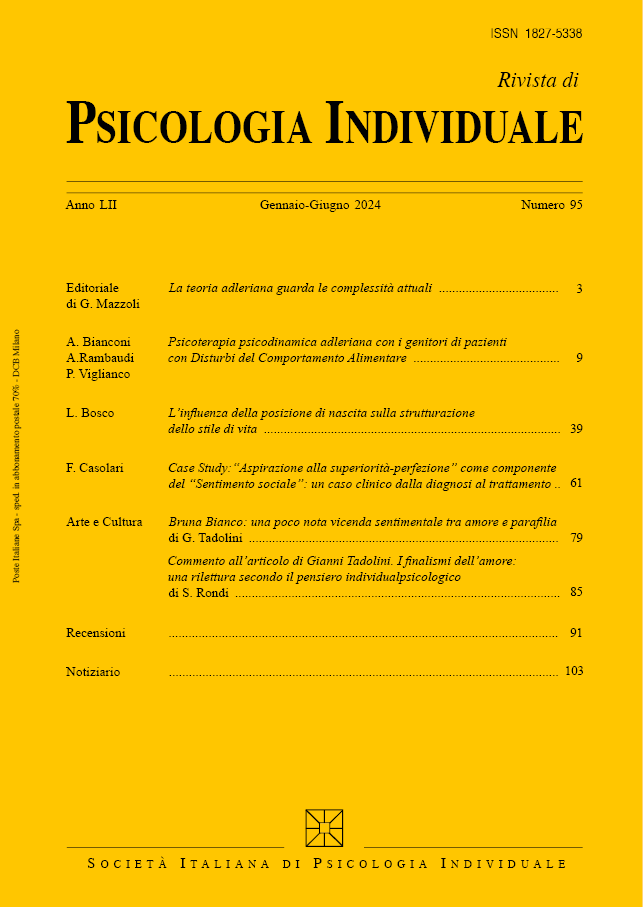TOWARDS AN EDUCATION IN ITSELF PSYCHODYNAMIC OF THE PSYCHIATRIST IN THE AGE OF NEUROSCIENCE?
Keywords:
neuroscienze, psichiatria psicodinamica, formazioneAbstract
Objective: the discussion and the urgent need to move towards a new way of being a psychiatrist has become evident at least since the early 2000s: the increase in psychiatrist burnout, the treatment resistance as one of the major public health problems, the risk of a biological reductionism of mental illness. Psychodynamic psychiatry provides a significant educational, scientific and therapeutic contribution for contemporary psychiatry, as a concrete application in the clinical practice of the biopsychosocial model, supported by developmental psychopathology, epigenetics and neuroimaging studies. The authors explore how the problem of the psychodynamic training of the psychiatrist during residency is observed and studied in the international literature.
Materials and Methods: a literature search was undertaken in PubMed, from 2006 to 2020, using the words: training + psychiatry + psychotherapy + resident.
Results: The search yielded 452 results, 194 were deemed relevant. 141 articles were related to non specific training aspects of psychotherapy, while 53 related specifically to psychodynamic training. These 53 psychodynamic research titles were examined through abstracts and further divided into three groups: general foundational aspects (group 1-12 articles); special aspects (group 2, 15 articles); other aspects (group 3-26 articles).
Discussion: the annual average of scientific production on this important topic is constant. A critical review of the studies examined highlights a wealth of comments, suggestions and observations based on personal clinical teaching experiences that counterbalance the lower amount of experimental data as measurements of the competence achieved by psychiatrists in training. The psychodynamic psychotherapy training is considered fundamental in psychiatry residency. The constructs of person and development are fundamental for diagnostic treatment in Psychodynamic Psychiatry.
Conclusion: the resident psychodynamic training to the knowledge of the patient, himself and to the acceptance of oneself and the other is at the same time a scientific necessity and an ethical prerequisite. It is to be hoped that the psychiatrist's training in psychotherapy, in addition to constituting a possible super-specialization, favors the reduction of drop-outs and treatment resistance to, in particular with difficult patients. This would result in lower treatment costs and better quality of interventions, as well as in more effective burn-out prevention






